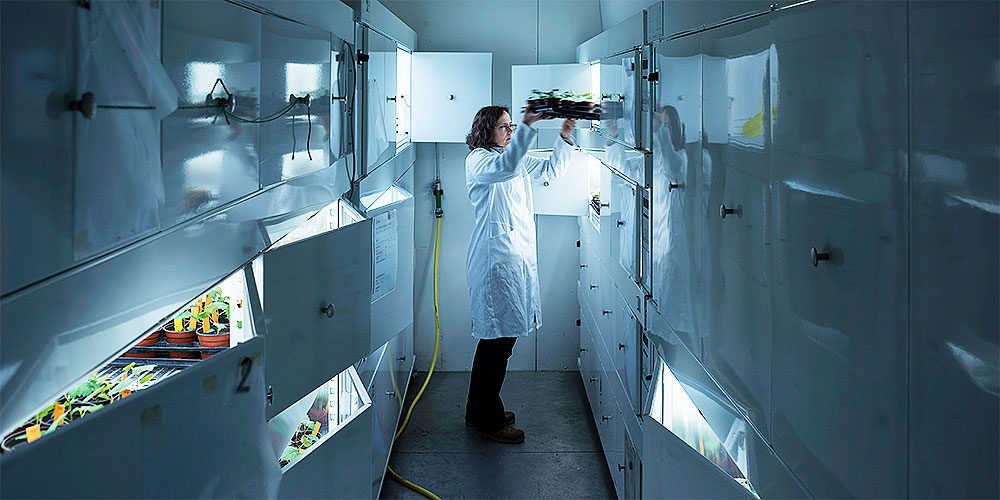Plant extracts against fungi.
Text: Christoph Dieffenbacher
Researchers are looking for plant substances that could replace the harmful copper in the fight against various plant diseases.
For more than 100 years, copper has been used as an effective antifungal treatment on grape vines, apples and potatoes. While copper effectively stops fungal spores from germinating, it is toxic at higher concentrations and accumulates in soil and groundwater. This is why alternatives to copper are needed.
Organic farming, in particular, has to move away from using copper if it is to remain credible. In the search for much-needed alternatives, researchers at the Department of Pharmaceutical Sciences of the University of Basel have joined forces with the Research Institute of Organic Agriculture (FiBL) in Frick, testing various plant-derived substances that could replace the harmful heavy metal in the treatment of downy mildew on vines, apple scab, and powdery mildew on potatoes.
More than 2,500 different plant extracts were tested for efficacy in preventing fungal growth. Their active constituents were characterized using chromatographic and spectroscopic methods, and selected plant extracts applied to seedlings under controlled lab conditions, and later tested in the field. The researchers are optimistic: A number of the extracts proved effective and the respective active constituents were successfully identified. Two extracts yielded particularly promising results in field tests.
More articles in the current issue of UNI NOVA.







